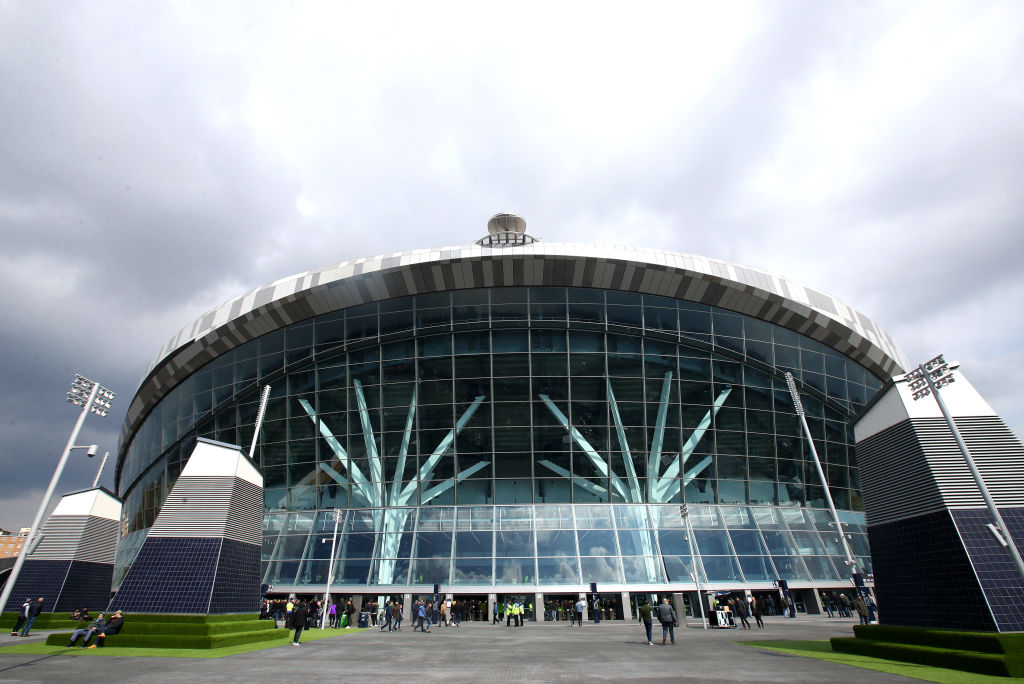Europe, as defined by the people who run the Champions Cup, appears to be in the grip of an irreversible shrinking process.
The boundaries have contracted to such an extent that the rugby version of the great continent runs from Dublin in the west only as far as Lyon in the east, from Edinburgh in the north to Bordeaux in the south and no further.
A tournament created in the mid-Nineties on a wave of evangelical zeal was supposed to introduce the game to new audiences by taking it where it had never gone before. So much for the spirit of the New Frontiersmen and women.
While the organisers claimed to have broken new ground last weekend on Tyneside for the 24th final, the bigger picture suggests nothing of the kind. All but one has been hosted in the UK, Ireland and France.
In other words, the clubs and unions running the event have only once broken out of their Six Nations straitjacket and plucked up the courage to take it to a non-rugby country, to the San Mames Stadium in Bilbao last year when Leinster squeezed past Racing.
More than 50,000 made it quite an occasion in the Basque Country but European Professional Club Rugby hardly seems to be in a rush to take their showpiece event to other new locations. Instead they have opted to stick rigidly within the confines of rugby country.
Such a safety-first policy might have been perfectly understandable in the early days until the competition found its feet. Despite having done so long ago and established itself as a major occasion in its own right, the organisers persist in refusing to push the boat out into unchartered waters.
There are some big cities in Europe with a track record for hosting the biggest sporting events. Amsterdam, Athens, Stockholm, Berlin, Antwerp, Helsinki, Rome, Munich, Moscow and Barcelona have all hosted a summer Olympiad.
They have something else in common. None has been chosen to stage a rugby Champions Cup final. Nor will any of their number be doing so any time soon given that neither of the next two finals will be played beyond the game's comfort zones.
Next year's final will be played not in Munich or Madrid but in Marseilles at the Stade Velodrome, a venue made all the more worthy by its state-of-the-art arena. The final after that, in 2021, will go not to Amsterdam, one of the bidding cities, but back to London town and another star-spangled Premier League venue, as built by Tottenham Hotspur.
Of the 24 finals, seven have been held in Wales, six in England, four in France, three in Ireland, three in Scotland and one in Spain. Italy have been one of the Six Nations for almost 20 years and yet they are still awaiting the privilege of staging a final.

That they had been chosen to do just that five years ago makes their omission from the list all the more glaring. Before the clubs wrestled control of the competition from the unions in 2015, that year's final had been booked for the San Siro stadium in Milan.
Despite the unions' belated attempt to address the issue, Italy's second largest city promptly fell victim to the political warfare. With the clubs now calling the shots, that year's final, an all-French affair, went ahead not on the continent but in the comforting surrounds of Twickenham.
Decisions like that and the one this week confirming Spurs for the 2021 final raise questions as to why an organisation based in Switzerland doesn't do more to justify the European part of its name.
Vincent Gaillard, EPCR's director general, defended the decision to award the UK another final.
“We received some exceptional bids for the 2021 final , the calibre of which is testimony to the strength of the process that we have implemented,'' he said.
“The final weekend is an attractive proposition for fans the world over and the team at the Tottenham Hotspur stadium have shown their committment, continually raising the bar for the Heineken Cup final experience.''
If it really is that appealing, then why are so many great European cities still apparently on rugby's out-of-bounds list? And why, given that it's the home of the title sponsors, is Amsterdam still on the outside looking in?
Whatever the answer, EPCR are keeping it strictly in-house. “We don't communicate the venues that bid for the finals,'' a spokesman said.
The response begs another question: What ever happened to the evangelical vision of a sport supposedly committed to spreading the gospel far and wide?
Telfer a victim of a French steak-out
Jim Telfer may have felt a pang of hunger when he read of the passing of his mighty opposite number from the mid-Sixties, Michel Crauste. As if scoring a hat-trick of tries on debut against Scotland at Stade Colombes was not bad enough, Crauste followed up at Murrayfield by taking the food out of Telfer's mouth.
The Scot had made a winning debut when Crauste sprang into action at the after-match banquet. What happened would have reduced a lesser man than Telfer to crying into his neeps and tatties.
With some swift forkwork, Crauste devoured his own steak, then reached over and helped himself to Telfer's. “I never said a word,'' Telfer recalled, thereby avoiding a diplomatic incident. “He couldn't speak English and I couldn't speak French.''
They remained speechless for the rest of the evening. Crauste, a gigantic figure in a French pack full of them, died last week at the age of 85.
PETER JACKSON / Photo: Getty Images


























